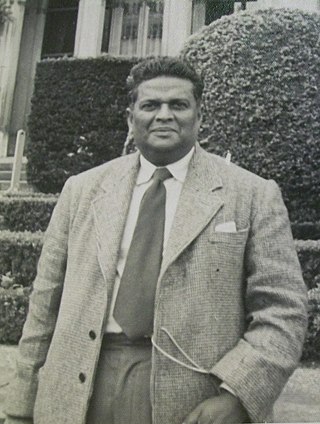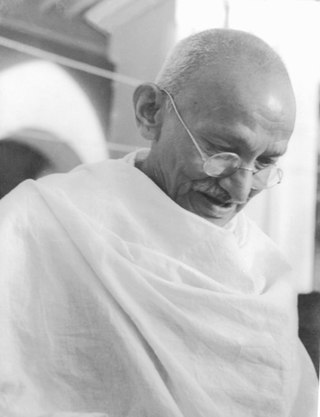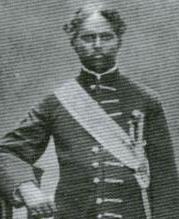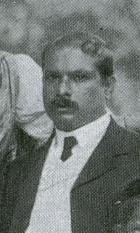
Vernon Corea was a pioneer radio broadcaster with 45 years of public service broadcasting both in Sri Lanka and the UK. He joined Radio Ceylon, South Asia's oldest radio station, in 1956 and later the Sri Lanka Broadcasting Corporation. During his time he presented some of the most popular radio shows in South Asia, including The Maliban Show, Dial-a-Disc, Holiday Choice, Two For the Money, Take It Or Leave It, Saturday Stars, To Each His Own, Kiddies Corner, and Old Folks at Home. He was well known not only in Sri Lanka, but right across the Indian Sub-Continent from the late 1950s to the 1970s – this was in the heyday of Radio Ceylon, the oldest radio station in South Asia.

Hector Vernon Ivan Seneviratne Corea was a priest of the Church of Ceylon.

Dominicus Corea also known as Domingos Corea and Edirille Rala, was the son of Don Jeronimo Corea and Anna Corea. Don Jeronimo Corea was also known as Mudaliyar Vikramasinha, Commander-in-Chief of King Mayadunne's army. Jeronimo Corea was executed by King Mayadunne's son, Rajasinghe. Dominicus Corea was born in Colombo in 1565. At that time, the Portuguese had colonised Ceylon, and his parents converted to Catholicism.
Ernest Corea was a Sri Lankan journalist and a diplomat noted for his work to maintain a free and independent press and for negotiations involving Sri Lanka's development programs.
Deshamanya Gamani Corea was a Sri Lankan economist, civil servant and diplomat. He was also the Secretary-General of the United Nations Conference on Trade and Development and Under-Secretary-General of the United Nations from 1974 to 1984, Ceylon's Ambassador to the EEC, Belgium, Luxembourg and the Netherlands, the Permanent Secretary of the Ministry of Planning and Economic Affairs of Ceylon and the Senior Deputy Governor of the Central Bank of Ceylon.
Chilaw is a city in Puttalam District, North Western Province, Sri Lanka. It is governed by an urban council, whereas the outskirts are governed by a pradeshiya sabha of the same name. The town is located 80 kilometres away from Colombo via Negombo.

James Clifford Aelian Corea was a Sri Lankan educationist. He was the former Principal of Royal College Colombo.

The Edirimanne Corea Family Union (ECFU) is a group set up to 'foster interaction' among the members of the powerful Corea family in the island of Sri Lanka. The Corea family is one of the leading families of Sri Lanka. They trace their ancestry to Dominicus Corea also known as Edirille Rala who was crowned King of Kotte and Sitawaka in Sri Lanka - Dominicus Corea was born in Colombo in 1565.

Gate Mudaliyar James Edward Corea was a Ceylonese colonial-era headman.

James Alfred Ernest Corea was a Sri Lankan public official. He was born in 1870. His father was Charles Edward Bandaranaike Corea who was a Proctor of the Supreme Court. His mother was Henrietta Seneviratne. J.A.E Corea's father died in 1872 when his youngest son Victor was just one. His wife Henrietta was a widow from the age of 21.
Charles Edward Bandaranaike Corea was a Sri Lankan lawyer.

Charles Edward Victor Seneviratne Corea was born in Chilaw, Sri Lanka, on 29 January 1871 to Charles Edward Bandaranaike Corea, a famous lawyer, and Henrietta Seneviratne. He was the youngest out of five children, three boys and two girls, Charles Edgar Corea, James Alfred Ernest Corea, Agnes Corea and Evangeline Corea. This family was acknowledged to be one of the wealthiest families in the whole of Ceylon. Victor's family was severely affected when Charles Edward Bandaranaike Corea died in 1872, leaving five children, of whom the youngest, Victor Corea, was only one year old. The five young children depended on their young, widowed 21-year-old mother to look after them. He attended the prestigious S. Thomas' College, Mount Lavinia, where he excelled in his studies.
Charles Alfred Ernest Corea was a Sri Lankan lawyer. He was a Proctor of the Supreme Court. His father was Dr. James Alfred Ernest Corea, the prominent physician of Chilaw who was the brother of Sri Lankan freedom fighters Charles Edgar Corea and Victor Corea.
Srikumaradas Charles Shirley Corea was a Sri Lankan politician. He was the 9th Speaker of the Parliament and a Member of Parliament, representing Chilaw. He was a member of the United National Party of Sri Lanka.
Harindra Jayantha Corea was a Sri Lankan politician and Member of Parliament, who represented Chilaw. He was member of the United National Party of Sri Lanka. His parents were Sir Claude Corea who was renowned politician and diplomat and Lady Karmini Corea. Sir Claude was Minister of Labour in the State Council of Ceylon led by DS Senanayake, and was appointed the first ever Representative of Ceylon to the UK and was also Ceylon's first Ambassador in the United States. Harindra Corea was the brother of Nihal Corea and Chandra Corea. The family home was situated in Alfred House Gardens in Colombo.

Mahatma Gandhi the 'Father of the Nation of India,' paid a historic visit to Ceylon in 1927. On his first and only visit to the island, he was invited to Chilaw by the famed freedom fighters of Sri Lanka, Charles Edgar Corea and his brother Victor Corea. In addition to Chilaw, Mahatma Gandhi had visited Colombo, Kandy, Galle, Jaffna, Nuwara Eliya, Matale, Badulla, Bandarawela, Hatton and Point Pedro during his three-week-long visit to Sri Lanka and made many speeches to Sri Lankan audiences. During his stay in Ceylon he also visited the schools established by the Buddhist Theosophical Society in Ceylon namely Ananda College in Colombo, Mahinda College in Galle and Dharmaraja College in Kandy.

Mohandiram James Alfred Corea was a Ceylonese colonial-era headman. He was the Muhandiram of Madampe an area in the Chilaw District of Sri Lanka.
Madampe is a town situated in the Puttalam District, of North Western Province, Sri Lanka. Madampe is a town with historical importance which was ruled by king Thaniwallbha according to the history. There are two areas: Old town and New town which is also known as Silva town. Old town is located on Colombo - Negombo - Chilaw main road. The new town is located on Kuliyapitiya road. The old town area is mainly occupied by Muslim community and consists of many shops. Town areas are occupied by commercial users: several super markets, shops, hardware stores, restaurants and other public institutions. Middle income class residential users are mostly occupied. The road network is well developed.

Charles Hubert Zaleski Fernando was a Ceylonese lawyer and colonial era politician. He was a member of the Legislative Council of Ceylon and the Colombo Municipal Council.
















